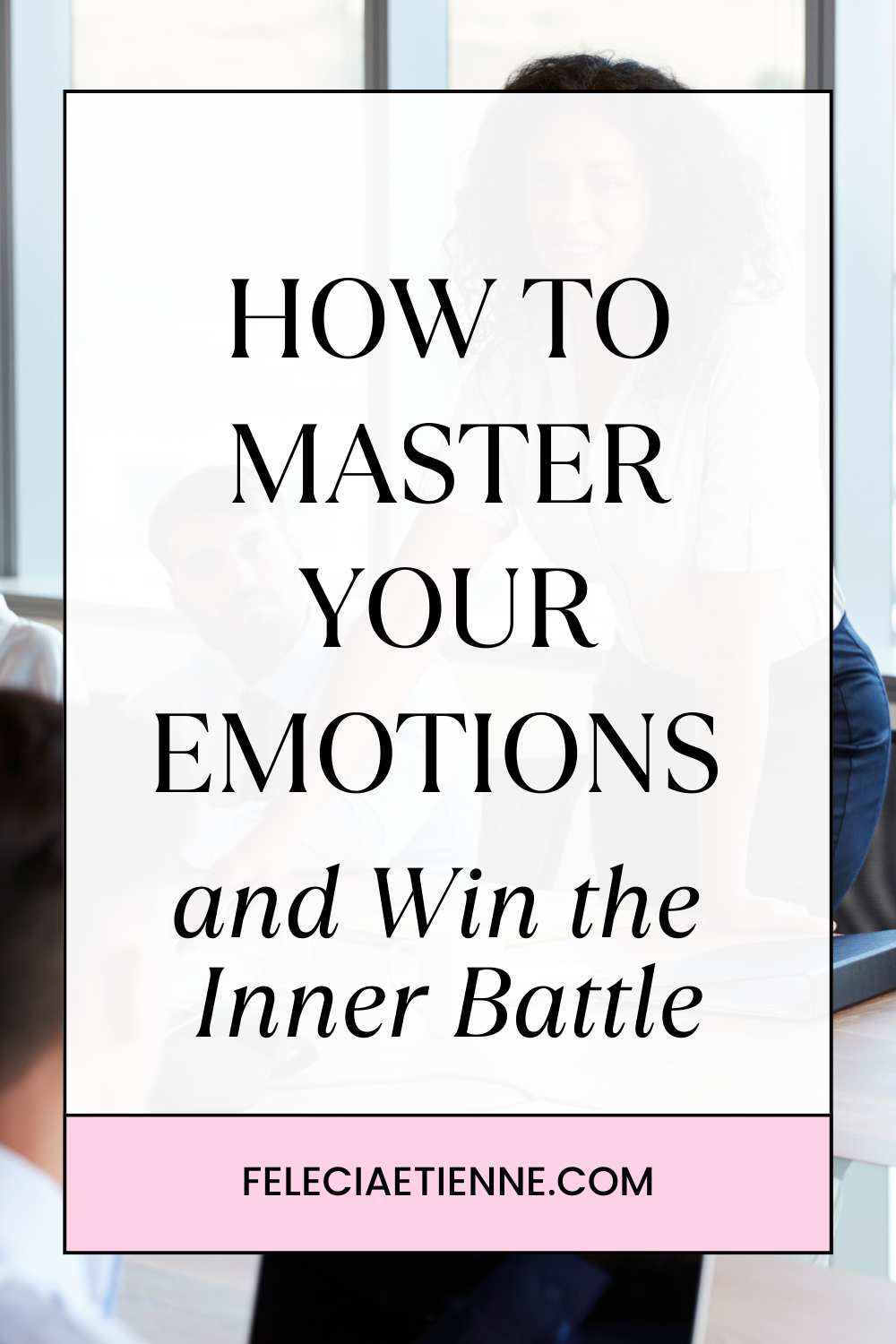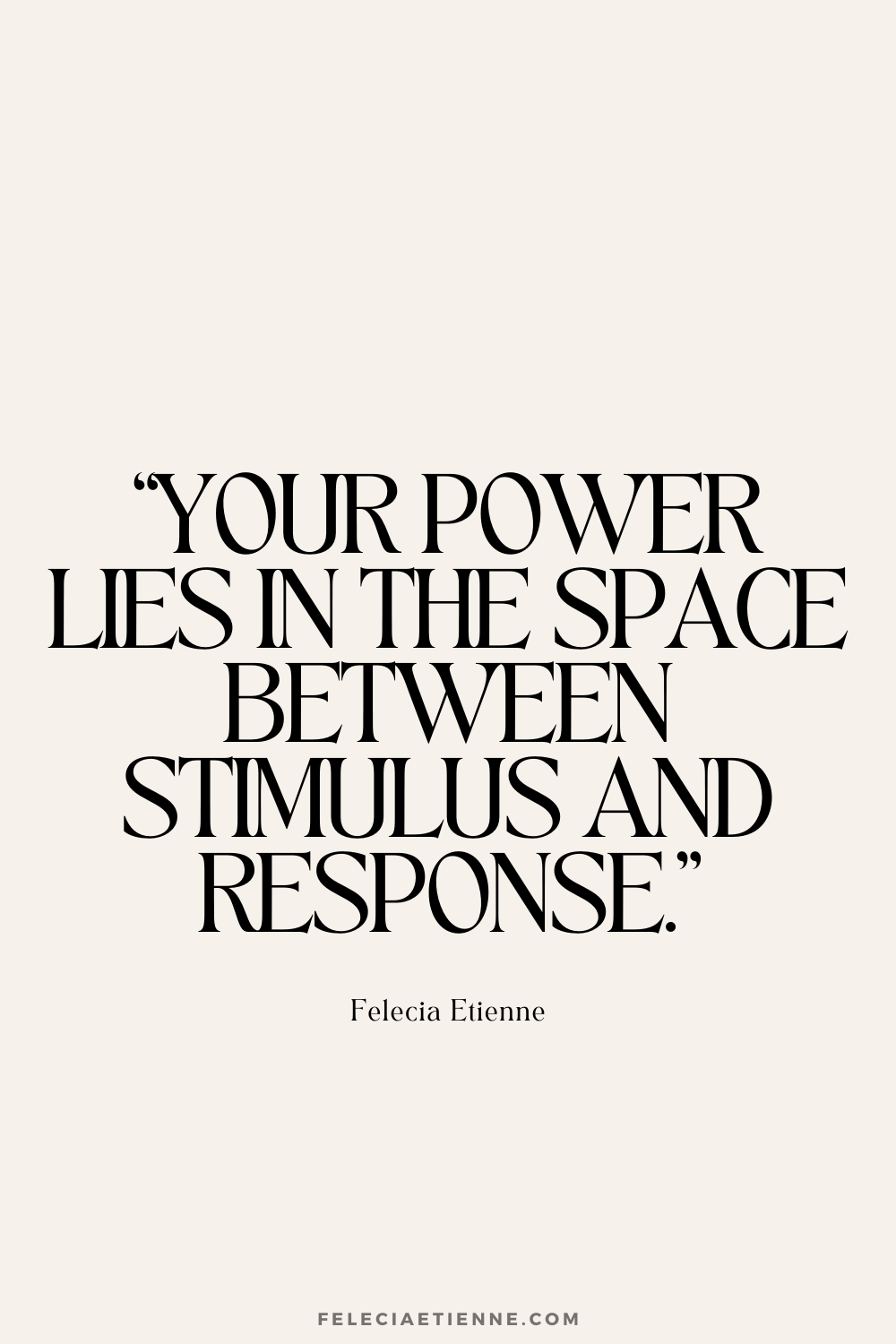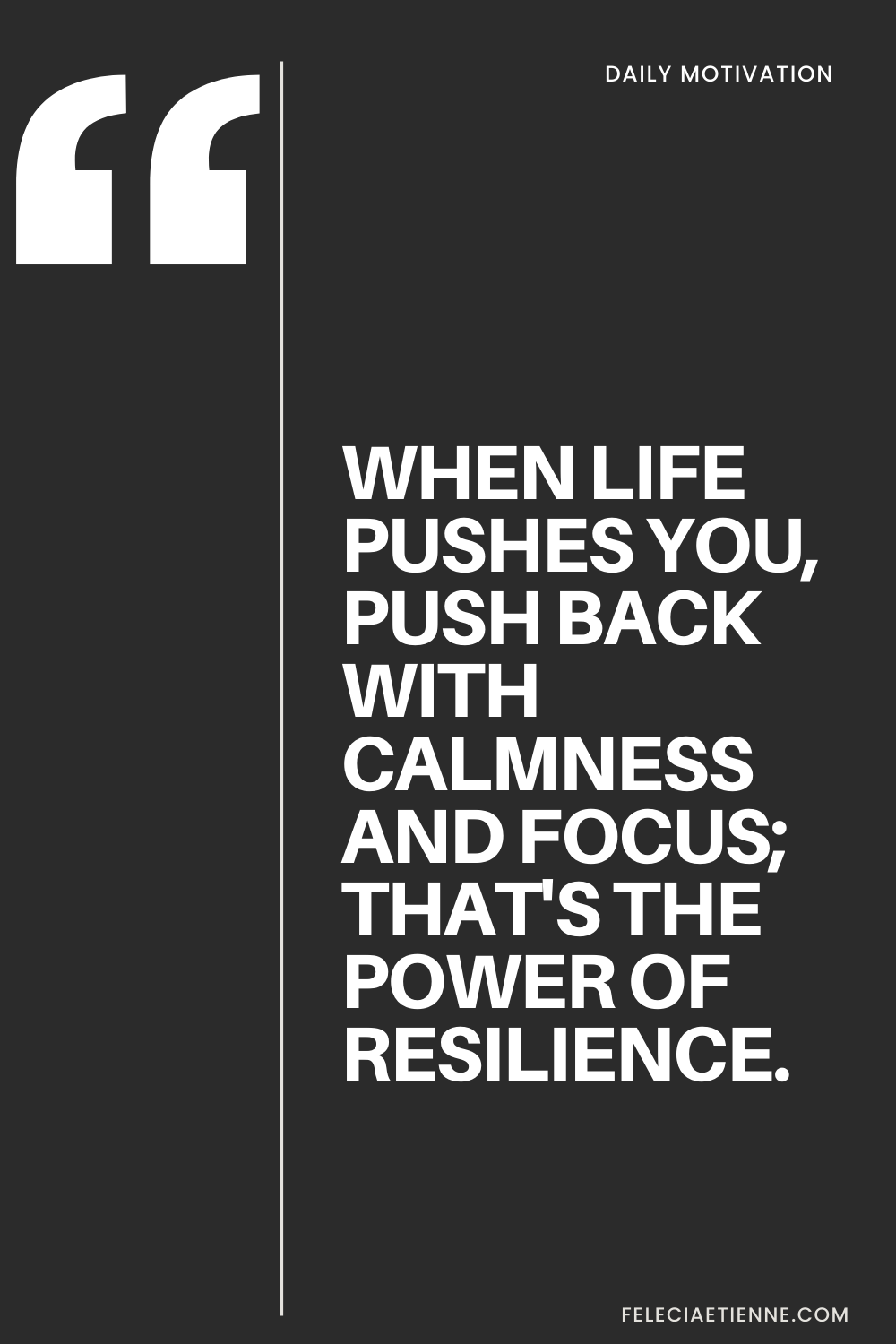How to Master Your Emotions and Win the Inner Battle
Ever felt like your emotions are running the show like you're not in the driver's seat? Imagine this: you're in a heated argument with a close friend, and they make a cutting remark that hits you right where it hurts. Suddenly, your world's turned upside down. Sounds familiar, right?
In our unpredictable, fast-moving world, it's easy for emotions to hijack our lives. But here's the empowering part: you have the ability to take back control and turn those emotional rollercoasters into wins.
Visualize feeling totally in control and empowered by mastering your emotions. Want to know how? Keep reading for some proactive steps you can take today to win this inner battle.
Understanding Emotional Reactions
“Mastery of your emotions begins with understanding. Recognize the space between stimulus and response, and choose growth.”
The first step to mastering your emotions lies in understanding what happens when you lose control. Have you ever reacted impulsively to a stressful situation and regretted it later? Our brains are designed to respond to threats, and we're not just talking about physical danger here.
RELATED ARTICLE: OWNING YOUR IDENTITY: BREAKING FREE FROM EMOTIONAL SHACKLES AND UNLOCK YOUR TRUE POTENTIAL
Identify Emotional Triggers
“Before reacting, breathe. Your words shape your world.”
Ever noticed how pressure can sometimes push us to our limits, leading us to react in ways we might not expect, like choosing to fight, flee, freeze, or appease? This reaction is our brain's way of responding to perceived threats, with the amygdala playing a key role. When it senses danger, it takes the reins, influencing our actions and words, sometimes to our later regret. For instance, have you ever found yourself in a heated exchange with a loved one, saying something out of anger that you wished you could take back? It's a common experience, one that underscores the importance of mastering our emotional responses.
Change Your Response
“Embrace the space between stimulus and response - that’s where your true power lies.”
The Power of Pause: Managing Emotions
Understanding that your brain's reaction to a perceived threat is a natural response can be a game-changer in how you handle your emotions. Victor Frankl said, “Between stimulus and response, there is a space. In that space, we have the power to choose our response. In our response lies our growth and our freedom.” This highlights the challenge of finding that space at the exact moment when emotions run high. By acknowledging this space, you open up the possibility of better managing your emotions.
Recent studies in psychology and neuroscience support Frankl's assertion, demonstrating the effectiveness of mindfulness, positive intelligence (PQ reps), and cognitive-behavioral strategies in expanding this space, allowing for more deliberate and controlled responses.
A Real-Life Scenario
Imagine keeping your cool in a tough spot, about to snap back at a critical email from a colleague. Then, you remember Frankl's wisdom about the pause between stimulus and response. You take a deep breath, weigh your options, and choose to reply thoughtfully instead of lashing out. Just like that, what could've been a heated fight turns into a chance for a great conversation. This kind of switch-up, which happens all the time, can totally change your relationships and boost your personal well-being. Being able to flip a potentially negative situation into something positive is super liberating and the first step towards real change.
“Your power lies in the space between stimulus and response.”
RELATED ARTICLE: Control Your Mind - Fear it or Control it... You Get in Life What You Create
Take Control of Your Emotions
“Choose your response, change your world. Emotional mastery leads to a healthier, more harmonious life.”
Envision a harmonious Life
Now, let's take this a step further. Imagine if you could expand that space of conscious choice in all areas of your life. How much more fulfilling and harmonious would your relationships be? What kind of impact would it have on your career? Your overall well-being?
When you are able to manage your emotions and choose deliberate responses, you can create a better world for yourself and those around you. It allows you to break free from reactive patterns and instead consciously choose how you want to show up in the world.
But how do you start expanding this space? One powerful tool is mindfulness - the practice of being fully present and aware of your thoughts, feelings, and surroundings without judgment. By becoming more mindful, you can increase your emotional intelligence and make more intentional decisions.
The Breathing Technique: A Quick Fix or a Trap?
The 90-Second Rule for Emotional Management
Have you ever been caught in a heated argument, feeling the anger bubbling up inside you? Despite deep breaths, the anger lingers. It's something a lot of us have experienced, getting caught up in the heat of struggling to cool down.
A Brain Scientist's Insight
Dr. Jill Bolte Taylor, a renowned brain scientist, offers a game-changing perspective on our emotions. She lets us in on a little secret: any emotion, even anger, naturally lasts for just about 90 seconds. This is because our body releases stress hormones in response to a threat, and these hormones typically take about 90 seconds to dissipate. After that, it's all on us. We're the ones holding onto those feelings, replaying events in our heads, and keeping the emotional flames alive.
RELATED ARTICLE: Embodying the Next Level You: The Game-Changing Mindset Shifts for Achieving Your Vision
Breaking Free from Emotional Cycles
This insight presents a way out of the emotional cycle. Realizing that continuing to feel an emotion after 90 seconds is a choice empowers us to alter our emotional response. Imagine the liberation of not being imprisoned by your feelings, allowing anger to surface, acknowledging its presence, and then letting it pass like a wave.
Strategies for Letting Go
The key is mastering the art of release within those crucial 90 seconds. Techniques such as focused breathing, mindfulness, or stepping away from the triggering situation can help regain emotional balance.
It's not about suppressing emotions but rather allowing them their moment before guiding them to the exit. Next time an emotion overwhelms you, time it. Allow yourself those 90 seconds to fully experience it, and then make a conscious decision to let it go. With practice, this method fosters emotional resilience, control, and peace.
Practical Tips for Emotional Awareness:
1. When you feel an emotion rising, take a moment to describe it in detail.
2. Identify what it feels like in your body.
3. Pay attention to the thoughts going through your mind.
This exercise can enhance your awareness of your emotions and improve your ability to manage them effectively.
Harness Your Inner Power: Noticing and Responding
Recognizing Physical Signs of Stress
“Transform stress into strength by listening to your body and responding with intention.”
Before we can shift our focus from reacting to responding, it's crucial to be in tune with our body's signals. Have you ever noticed yourself taking rapid, shallow breaths, clenching your teeth, or raising your shoulders when you’re stressed? These are signs that your body is in survival mode. Recognizing these signs and consciously easing this tension is a key step in switching off survival mode, allowing rational thinking to reclaim the driver's seat.
RELATED ARTICLE: Escaping the Overwhelm and Stress Vortex: 11 Steps to Regain Control
Shifting from Reaction to Response
“Every impulsive reaction is a chance to practice calm. Visualize, breathe, and transform.”
Imagine you’re stuck in traffic, and you feel your body tensing up. By simply taking a deep breath and relaxing your shoulders, you can start to shift from reacting to responding. This small change can make a big difference, helping you stay calm and think clearly. It's like putting on a superhero cape in the face of stress, giving you the power to control your reactions.
The Power of Awareness
“When tension rises, awareness is your anchor. Breathe deeply and reclaim your calm.”
Remember, the first step to responding rather than reacting is awareness. Once you recognize the signs of tension, you can take action to release it, opening up the possibility for a more thoughtful and measured response. Gaining an understanding of your personal triggers and tendencies is crucial for regulating your emotions effectively. This insight allows you to leverage your strengths and apply them strategically in challenging situations, enabling you to navigate difficulties with greater resilience and insight. By paying attention to what your body's telling you and practicing deep breathing whenever you feel tension rising, you can handle stress better, boost your overall well-being, regain control, and respond more effectively to stressful situations.
Winning the Fight: Training Your Brain
Become a Champion in Your Own Life
“Be the champion of your own story—where every setback fuels your comeback.”
Have you ever pondered what it takes to become a champion in your own life? It's not merely about excelling and outshining others when the spotlight is on you. The real secret to success? It's way more than what you see on the surface. The true magic happens off-stage—in the countless hours of dedicated training, tough conditioning, and non-stop practice that all go down away from any audience. It's in those quiet moments alone, putting in the work when nobody's around, that you really become a champion. Embracing a disciplined life and focusing on getting better every day can unlock your full potential and help you achieve greatness in any area of life.
The Power of Mental Conditioning
“Your greatest opponent isn’t the challenge ahead, but the doubt within. Train your mind, win the fight.”
“Turn pressure into power. Use mental strength to flip life’s challenges into wins.”
“When life pushes you, push back with calmness and focus; that’s the power of resilience.”
Facing the Fight: Your Mind as Your Arena
Think of yourself as a prize fighter stepping into the ring, not against an opponent, but against your own overwhelming emotions. It's not the external blows that you're dodging, but the internal ones—before anxiety tries to floor you or stress corners you. The silent, steady training of your mind arms you with resilience and strength to fight back.
The Power of Mental Conditioning
Imagine facing a once insurmountable challenge. This time, thanks to your investment in mental conditioning, your response is different. You’re calm, focused, and ready. This transformation in how you face life's toughest moments isn't just about coping; it's about mastering your emotional reactions.
Building Mental Muscles
By dedicating time to train your mind as a fighter does for a bout, you unlock a world of possibilities. Through meditation, journaling, or mindfulness, you learn to stay centered and poised, building the mental muscles to not just endure but thrive.
How to Start: Mental Rehearsals
Practice Mindfulness:
Begin with five minutes of mindfulness each day. Reflect on a challenging situation and visualize facing it with calmness and clarity.
Visualize and Alter Responses:
Picture the situation in detail and observe your body's reactions. Then, see yourself staying calm and responding thoughtfully. Neuroscience offers an intriguing insight: our brains can't distinguish between performing an action and merely visualizing it. This means you have the power to change how you respond in those moments.
RELATED ARTICLE: Neuroplasticity Transformation: Rewiring Your Habits for a Kickass Life
Mental Rehearsal Exercise
“Mental rehearsal is your secret weapon to mastering your emotions and enhancing your life.”
Imagine a scenario where you lost your temper during a heated discussion. Instead of dwelling on the event, try this exercise: mentally revisit the situation. Picture every detail vividly and observe how your body reacts. Now, consciously alter your responses in this mental rehearsal. See yourself staying calm, breathing deeply, and speaking thoughtfully.
Transform Your Reactions
By practicing this mental exercise, you're not just daydreaming. You're training your brain to respond differently, creating a new, calmer you. It's a small change with the potential to make a significant impact on your interactions and emotional well-being.
So, next time you recall an impulsive reaction, take a moment to mentally rehearse a better response. You'll be blown away by how such a simple habit can change your behavior and your life.
Action Steps to Win Your Emotional Battles
Feeling overwhelmed by your emotions? Here's a powerful powerhouse strategy to help you reclaim control and respond more effectively:
Recall a Challenging Moment:
Think of a specific situation where you wished your response had been different. Picture it clearly.
Reimagine the Scenario:
Now, replay the event in your mind. This time, see yourself responding calmly and constructively.
Visualize Positive Responses:
Imagine how you can handle similar situations in the future with confidence and composure.
Practice Leads to Mastery:
Repeat this exercise three times. Each time you do, you’re training your mind to respond better.
Believe in your ability to change and grow. These steps are your tools for emotional resilience and personal triumph. You've got this!
Conclusion: Becoming Your Own Champion
Wrapping up and winning that inner battle with our emotions is all about commitment, patience, and knowing yourself. We're wired to be impulsive, but what really makes us stand out is how we handle those instant reactions. By understanding our emotions and choosing our responses deliberately, we can navigate even the toughest feelings.
Remember, you've got what it takes to be your hero. Don't back down from this challenge – kickstart your journey to mastering your emotions today. And if you feel like you need some guidance, that's where I come in.
As a high-performance and mental fitness coach, I'm here to help you build resilience and make smarter choices. Ready to step up to a more empowered you? Let's dive into this change together. Schedule a clarity call now, and let's tackle our emotions head-on!
By making these adjustments, the article will become more structured, engaging, and relatable, enhancing its effectiveness in connecting with readers and providing valuable guidance.
Get Your Free High-Performance Assessment here!
Sign up to receive your Free Level-Up & Thrive Assessment.























